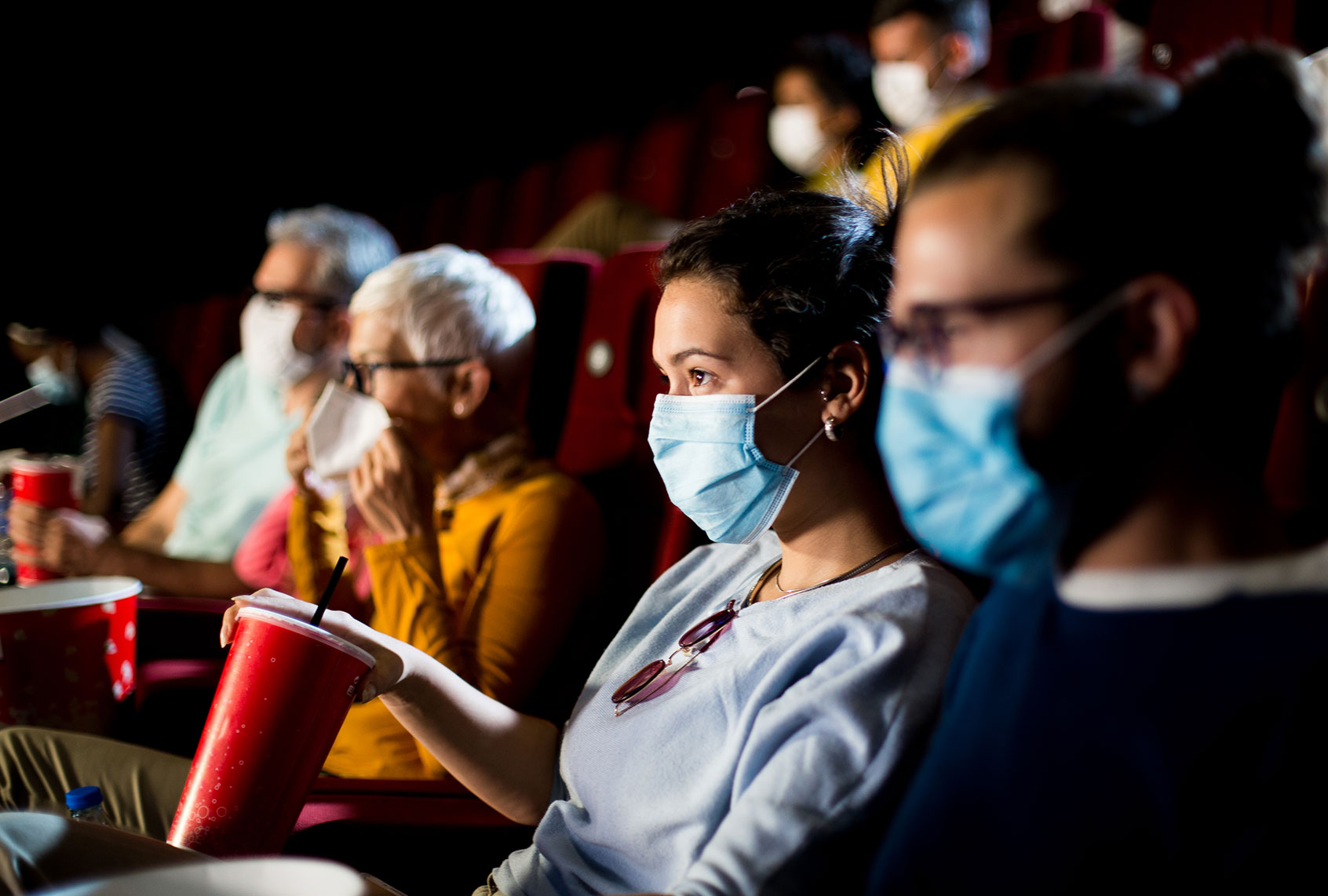At the beginning of the pandemic, when movie theaters around the country temporarily shuttered, our living rooms suddenly became our movie theaters. Gone were the days of meeting a friend or going on a date to the theater; Netflix and chill was the only option.
Yet as vaccination rates climb, and award season nears, movie theaters have been steadily reopening in most states; some recent theatrical releases, including the James Bond franchise’s “No Time To Die,” had huge releases (in more than 4,400 theaters in the case of the Bond flick).
Still, many consumers are hesitant to return to theaters, as weekly box office totals show: In the first week of November in 2019, domestic box offices posted $157,058,718 in ticket sales. In the same week in 2021, overall box office gross was only $88,381,531.
Clearly, not all consumers are willing or ready to return to the cinemas again. Part of that may have to do with latent fears related to gathering in crowded spaces. But as vaccination rates continue to rise, are such fears grounded in science?
Tellingly, many public health experts are unafraid of seeing movies in theaters — though, as they note, there are caveats.
“I have not been to a movie theater yet because there hasn’t been a movie that I really wanted to see that was exclusively in theaters, as many are simultaneously available on streaming services,” said Amesh Adalja, a senior scholar at the Johns Hopkins Center for Health Security, last week. “However, ‘Ghostbusters: Afterlife’ comes out this Friday, and is only in theaters, so I will be there.”
Like most activities at this point in the pandemic, scientists now have a good sense of what is considered risky and what isn’t as risky. In the case of movies, risk is very dependent on whether movie theaters require masks or not. Masking, Adalja said, “will delimit outbreaks.”
Adalja added that since he is fully vaccinated and is “not someone who is trying to avoid an inevitable breakthrough infection at all costs,” he will go to see a movie that’s only available in theaters.
However, masking and vaccination guidelines in theaters do vary geographically, and are often very dependent on state and county laws.
Regal Theatres, one of the largest theater chains in the country, states that masks aren’t required in their theaters unless mandated by state and local guidelines. If mandated, seated patrons can remove masks while eating and drinking. According to these guidelines, staff monitor the theater as a “standard practice” when possible. This appears to align with the industry’s CinemaSafe guidelines, which are followed by other top cinema companies, too.
Want more health and science stories in your inbox? Subscribe to Salon’s weekly newsletter The Vulgar Scientist.
As far as capacity limits go, which the CinemaSafe guidelines track, there are none in the U.S. at the moment. Notably, no major outbreaks have been linked to movie theaters to date.
As John Volckens, an aerosol scientist and professor in the Colorado School of Public Health at Colorado State University, explained to Salon, “‘safe’ or ‘risky’ is in the eye of the beholder.”
“Nothing is absolutely safe, but what I will say is that if you’re just breathing and not talking, you have made about 10 times fewer particles,” Volckens said. “And so being in a crowded space of other people being quiet, like a library or a theater is much less risky than being in a bar where everyone is talking or shouting to each other.”
Volckens recently co-authored a study that found singing produces 77 percent more respiratory aerosols than talking — an important finding as researchers now know that airborne transmission of infectious respiratory particles plays an important role in how the virus spreads. Volckens added that as a fully vaccinated and boostered individual, he feels comfortable going into a movie theater now wearing a mask.
“I will tell you that before my booster shot and before my children were vaccinated, I would not go there because I would want to protect them,” Volckens said. “But now that they’re all vaccinated, I would be comfortable going to watch a movie — assuming you know [the theater] had adequate ventilation, and I would wear a mask.”
According to a study published in the peer-reviewed journal Frontiers, the probability of infection and transmission in a movie theater decreases when patrons wear masks, social distance, and when there is proper ventilation.
But as Volckens noted, going to a movie theater can be considered a “less risky” activity than, say, going to a small bar where everyone is shouting over the music.

